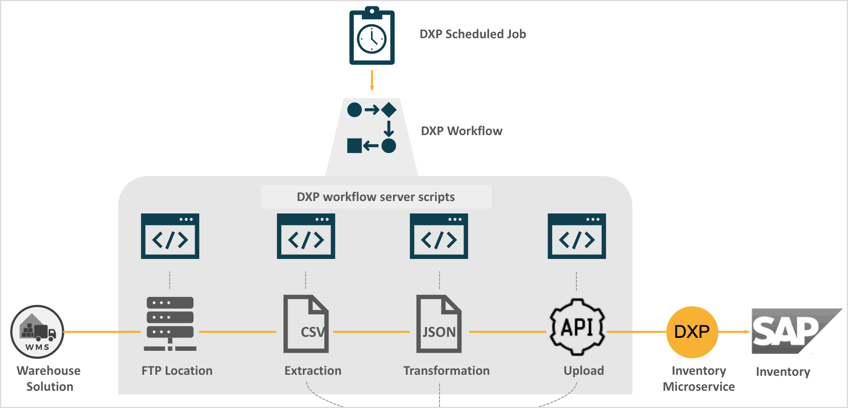File based integration
You can implement a Neptune DXP server script using an FTP library that provides an asynchronous interface communicating with an FTP server. This approach allows to connect and listen for file arrivals in a remote directory and then upload it to your local Neptune DXP file system or transform it to a different format, for example save to a database or generate a JSON equivalent file. To achieve continuous integration, you can define a Neptune DXP Scheduled Job to execute the file based integration server script at regular intervals (for example, once a day). Neptune DXP Workflows may be used to orchestrate server scripts to implement more complex ETL integration scenarios.
For example, a legacy warehouse management system (WMS) is only able to extract to an FTP location its stock position using a csv file.
A Neptune DXP microservice may be introduced to proxy the legacy WMS and execute a regular job to process all inventory updates.
The job itself executes a server script, which in turn in triggers a workflow defined at design time using the Neptune DXP Workflow Engine.

Each step in the workflow is a server scripts orchestrating the:
-
FTP connection using an FTP library
-
CSV file Extraction using a CSV library
-
CSV file Transformation to JSON using a CSV to JSON conversion library
-
Upload to a Neptune DXP Microservice by invoking the service’s API and posting the JSON schema generated above as the API payload and ultimately synchronising the stock position to a backend SAP ERP system.
Similar flows can be built to process a variety of file formats such as Microsoft Excel sheets, XML files, or SSH2/SFTP streams.